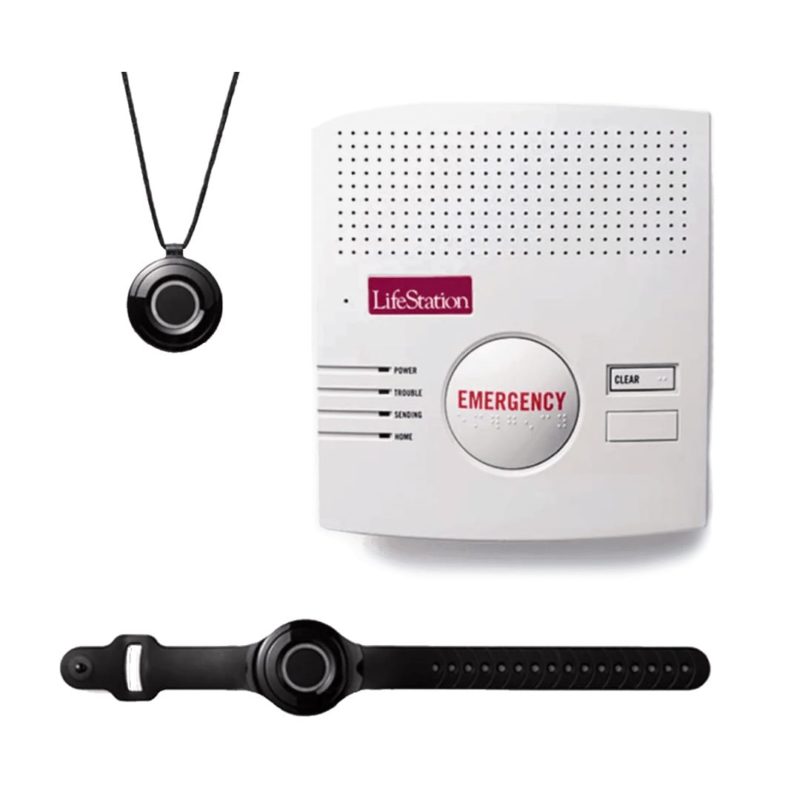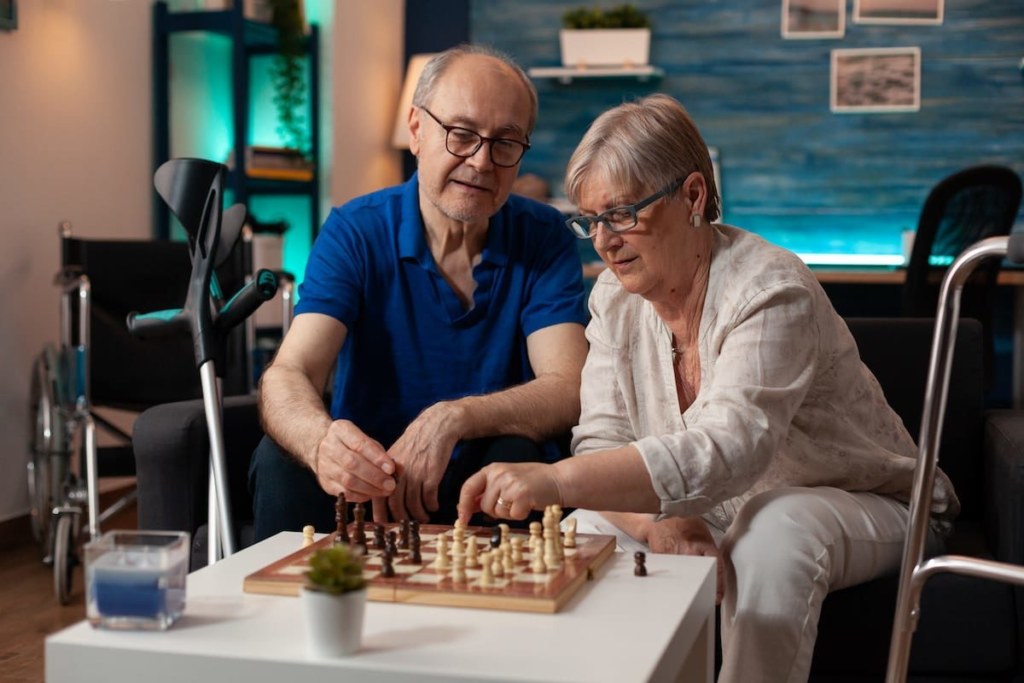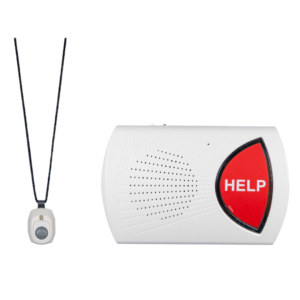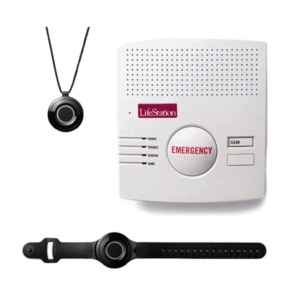Bay Alarm Medical Vs LifeStation: Which One Is Best For You?
AgingInPlace.org keeps our resources free by working as an affiliate partner with some companies mentioned on our site. These partnerships or the commission we may earn do not affect our opinions or evaluations of the products we mention. Our reviews are solely based on our research methodology and from input from our AgingInPlace.org Advisory Board. Learn more about our ad policies.
Bay Alarm Medical Vs LifeStation: Which One ...
Products carousel
Medical alert systems are an assistive technology innovation designed to help people age safely in place. Several well-established companies, including Bay Alarm Medical and LifeStation, produce top-quality medical alert systems.
If you’re looking for the best medical alert systems available, you may already have had a fall or medical emergency. You may also be proactively striving to avert this type of disaster. Medical alert systems have been shown in studies to reduce trips to the emergency room for seniors. They’ve also been found to reduce the number of days required for hospital stays, possibly because they enable seniors to access help quickly.
Medical alert systems provide much-needed peace of mind for the families of loved ones. But trying to figure out which system is the best choice for you and your family can be challenging and stressful.
In this article, we’ll compare the pros and cons of Bay Alarm Medical vs LifeStation. Both brands provide excellent options. However, there are specific differences between the two. Read on. We’ll break it all down for you here.
Bay Alarm Medical vs LifeStation – Comparisons at a Glance
| Costs and Features | LifeStation | Bay Alarm Medical |
| Upfront Equipment Fee | $0 | $99-$179 for mobile systems, $0 for at-home systems |
| Monthly Cost | $22.95–$44.95 | $24.95-$39.95 |
| Activation Fee | $0 | $0 |
| Contract | None | None |
| Add-On Services And Costs | Auto fall protection $6 monthly, wall buttons $2.95 monthly per button | Charms that disguise pendant call button: $25 one-time fee, Wireless Wall Button: $35 one-time fee, Lockbox: $30 one-time fee, Extra Vial of Life packets: $8 one-time fee, Additional Auto Fall Detection Button: $15 monthly, extended warranty: $2.95 monthly |
| Connection | Landline, cellular, GPS | Landline, 4G LTE, GPS |
| Wall Mount Buttons | Yes, $2.95 a month each | Yes, for a one-time fee of $35 each |
| Two-Way Communication | Yes | Yes |
| Battery Life | Up to 72 hours for mobile GPS unit, or 6-18 hours for SOS Smartwatch. Wall buttons have a five-year battery life | |
| Water Resistance | Yes | Yes |
| Fall Detection | Yes, as a $6 a monthly add-on | Yes, as a $10 a month add-on |
| GPS Locator | Yes, for mobile systems | Yes, for mobile systems |
| Call Center Hours ccc | 24/7, 365 days a year | 24/7, 365 days a year |
| Costs and Features | LifeStation | Bay Alarm Medical |
| Upfront Equipment Fee | $0 | $99-$179 for mobile systems, $0 for at-home systems |
| Monthly Cost | $22.95–$44.95 | $24.95-$39.95 |
| Activation Fee | $0 | $0 |
| Contract | None | None |
| Add-On Services And Costs | Auto fall protection $6 monthly, wall buttons $2.95 monthly per button | Charms that disguise pendant call button: $25 one-time fee, Wireless Wall Button: $35 one-time fee, Lockbox: $30 one-time fee, Extra Vial of Life packets: $8 one-time fee, Additional Auto Fall Detection Button: $15 monthly, extended warranty: $2.95 monthly |
| Connection | Landline, cellular, GPS | Landline, 4G LTE, GPS |
| Wall Mount Buttons | Yes, $2.95 a month each | Yes, for a one-time fee of $35 each |
| Two-Way Communication | Yes | Yes |
| Battery Life | Up to 72 hours for mobile GPS unit, or 6-18 hours for SOS Smartwatch. Wall buttons have a five-year battery life |
| Water Resistance | Yes | Yes |
| Fall Detection | Yes, as a $6 a monthly add-on | Yes, as a $10 a month add-on |
| GPS Locator | Yes, for mobile systems | Yes, for mobile systems |
| Call Center Hours ccc | 24/7, 365 days a year | 24/7, 365 days a year |
LifeStation Overview


LifeStation is an American company based in New Jersey. They’ve provided medical alert systems and telehealth services for around 40 years.
LifeStation utilizes up-to-date technological advances to enhance communication and connect-ability between caregivers and their loved ones. All their products come with a 30-day money-back guarantee.
LifeStation has an A+ Better Business Bureau rating. Customers give it 3.65 out of 5 stars on their BBB page. On Trustpilot, 68% of their reviews are in the excellent range, and they get 4.2 out of 5 stars.
LifeStation’s call centers are based in the US. They’re open 24/7, 365 days a year.
Who Is LifeStation For?
LifeStation manufacturers medical alert systems for at-home and on-the-go use. Some of their on-the-go options fold in a step tracker and heart rate monitor, so they’re tailormade for active, health-conscious folks.
Technologically savvy seniors and caregivers will appreciate that Alexa can be enabled to work with LifeStation and Find My Loved One, a premium feature available with their mobile units.
According to the CDC, one in eight people in the US has some degree of hearing loss. Statistically, older individuals are more at risk for hearing loss than younger folks. LifeStation’s help buttons are equipped with loud speakers and highly sensitive microphones. This makes them an excellent choice for anyone with compromised hearing.

What Are the Costs of LifeStation?
Some of LifeStation’s systems cost more per month than Bay Alarm Medical’s. However, they don’t charge an equipment fee for any product, and auto fall detection is $4.00 less per month.
- The in-home system costs $22.95 a month if connected to a landline.
- The in-home system starts at $32.95 a month if powered via cellular service.
- If you bundle mobile protection into your in-home service, your monthly cost will be $43.95.
- Mobile protection starts at $37.95 a month.
- Auto fall protection is extra, with some packages at $6 a month.
- Wall-mount buttons cost $2.95 a month.
Pros and Cons of LifeStation
Pros
- High volume speaker and sensitive microphone are easily used by people hard of hearing.
- Highly transparent company representatives who don’t work on commission.
- Inexpensive landline service.
- 30-day money-back guarantee.
- No contract.
- No equipment or activation fee.
- Packages come with two in-home help buttons that can be worn by two people simultaneously.
Cons
- In-home cellular plans are expensive.
- Not every plan includes auto fall detection.
- $10 shipping fee for equipment.
Different Plans and Models of LifeStation
LifeStation’s At-Home Medical Alert System can be connected through a landline or wirelessly through AT&T’s 4G LTE cellular network. The base has a 32-hour backup battery that will keep you connected, even during a power outage.
If you have a landline, your at-home help buttons will operate within a 500-foot signal range. The range for cellular service is slightly larger, at 600 feet.
The buttons are waterproof, lightweight, and worn on a lanyard or wristband. They have an extra loud speaker and sensitive microphone, making this package a smart choice for the hard of hearing.
The At-Home Medical Alert System comes with a 30-day money-back guarantee. It has no upfront equipment cost or activation fee.
Add-ons you can fold into any at-home package are:
- Auto fall detection – $6 monthly
- Wall mount button – $2.95 monthly
Your monthly fees are determined by the package you buy:
Landline
Monthly cost: $22.95
This package comes with a base station, two in-home medical alert buttons, a lanyard, and a wristband. Auto fall detection is not included but can be purchased separately. This system can be used to protect two people simultaneously.
Cellular Standard
Monthly cost: $32.95
This package comes with a wireless base station, two in-home medical alert buttons, a lanyard, and a wristband. Auto fall detection is not included but can be purchased separately.
Cellular Select
Monthly cost: $38.95
This package comes with all the equipment included in the Cellular Standard Package plus a Protection Plan that covers your equipment in case of loss, damage, or theft. Auto fall detection is not included but can be purchased separately.
Cellular Supreme
Monthly cost: $44.95
This package comes with everything included in the Cellular Select Package. It also includes auto fall detection and a lockbox.
LifeStation On The Go
LifeStation has two mobile options: Sidekick and Sidekick Smart. Both can be used with Alexa and Find My Loved One, a monitoring service for caregivers. The LifeStation Medical Alert skill for Alexa is free to download. It launches to use the Find My Loved One service. Find My Loved One lets you know where your person is in real-time, plus provides pendant press history. Find My Loved One can also be activated via text without Alexa.
- Monthly cost: $37.95 without auto fall detection. $43.95 with auto fall detection
- This stand-alone, water-resistant help button is worn on a lanyard around the neck. No base device is required.
- Sidekick is powered through the AT&T 4G LTE network. Pinpointed location tracking, both indoors and outdoors, is done via GPS, Wi-Fi, and mobile LTE.
- Monthly cost: $43.95
- The Sidekick Smart is a water-resistant, custom-designed smartwatch that doesn’t look like a medical alert device.
- Sidekick Smart is powered through the AT&T 4G Lite network. Pinpointed location tracking, both indoors and outdoors, is done via GPS, Wi-Fi, and Bluetooth signals.
- In addition to indoor/outdoor GPS tracking and 24/7 call center access, the Sidekick Smart includes a pedometer for tracking steps, plus a heart rate monitor. The built-in lithium battery will hold a charge for around five days.
Bay Alarm Medical Overview
Bay Alarm Medical is a decades-old manufacturer of medical alert systems. Their parent company, Bay Alarm, has manufactured security systems for homes and businesses for over 75 years.
The company’s stated mission is to CARE for their clients by having Compassion, Accountability, Respect, and Ethics. In this era of pirated data and security breaches, they are also committed to protecting their clients’ data and personal information.
Bay Alarm Medical has an A+ Better Business Bureau rating. Customers give it 4.38 out of 5 stars on their BBB page. At Trustpilot, 75% of their reviews are in the excellent range, and they get 4.1 out of 5 stars.
Bay Alarm Medical’s call center is based in the US and is open 24/7, 365 days a year.
All of Bay Alarm Medical’s packages include a 30-day, risk-free trial.
Who Is Bay Alarm Medical Ideal for?
Bay Alarm’s In-the-Home System requires no installation or technological know-how. All you do is plug it into an outlet, and you’re good to go. This intuitive setup makes this system a good choice for anyone skittish about technology.
Data indicates that cost is a significant roadblock, stopping many elders from getting medical alert systems. Bay Alarm Medical has budget-priced options, particularly for their at-home system. This makes it a good choice for cost-conscious consumers.
If worrying about your loved one’s whereabouts keeps you up at night, Bay Alarm’s Caregiver Tracking App makes their mobile package a great option. The app lets you know where your loved one is in real-time. It also provides information about their location history and lets you know when their button’s battery is running low.

What Are the Costs of Bay Alarm Medical?
- Bay Alarm Medical’s at-home system starts at $24.95 a month
- Wall mount buttons have a one-time charge of $35 per button
- Mobile systems start at $29.95 a month
- Mobile units have an upfront equipment cost: The SOS Smartwatch is $179, and the GPS button is $79
- Fall detection is $10 a month
Pros and Cons of Bay Alarm Medical
Pros and cons of Bay Alarm Medical include:
Pros
- Plug-in-and-play set up for their home system.
- At-home help buttons have a 1,000-foot signal range.
- Charms are available that make the help button look like jewelry.
- 30-day risk-free trial.
- The monthly subscription rate is fixed and will never increase.
- According to a company representative, their average call center response time is 12 seconds.
- Can be run through a landline or cellular service.
- A bundled package that folds in at-home and mobile services is available.
Cons
- Wall buttons cost $35 each.
- Fall detection costs $10 monthly.
- Upfront equipment costs are expensive.
Different Plans and Models of Bay Alarm Medical
- The plug-in-and-play at-home system can be run through your landline or 4G LTE cellular service. You don’t need an existing cell phone account to use cellular service. All billing is done directly through Bay Alarm Medical.
- The home system includes a home base unit with a large help button. To install the unit, simply plug it into an electrical outlet. If you use a landline to connect your base, the unit will also have to be located near a phone jack.
- You’ll get one wearable help button with a 1,000-foot signal range. The button can be clicked into a pendant or wristband. It’s 100% waterproof, so you can wear it in the shower or bathtub. An auto fall detection button is available for an additional $10 monthly.
- The In-the-Home System has no upfront equipment cost. Landline service is $24.95 a month. Cellular service is $29.95 a month.
- Fear of falling or needing medical assistance away from home can be debilitating. A mobile medical alert system can alleviate that anxiety and enable you to enjoy activities outside the home.
- This compact and lightweight GPS device fits easily in the palm of the hand. It can be clipped onto clothing or carried in a handbag or pouch. It operates on AT&T’s 4G LTE network and provides location tracking and caregiver tracking across the United States.
- It comes with a lanyard you can wear around your neck and a pouch for wearing it on your hip. It also comes with a charger dock and USB port so you can charge it on the go in your car. The button holds a charge for around 120 hours.
- You can use this device if you have a pacemaker, provided you wear it on your hip and not around your neck. The device contains a magnet that can interfere with your pacemaker’s functioning.
- The Go GPS Help Button costs $29.95 monthly plus a $99 upfront equipment fee. Auto fall protection is available for an additional $10 a month.
- The SOS Smartwatch is designed for active people who want the comfort of 24/7 call center availability without auto fall detection. The watch includes health-supporting features such as a step tracker. It’s also great looking on the wrist. Some people shy away from mobile medical alert systems because they don’t want their devices to show. The Go SOS Smartwatch looks like an attractive watch, not a medical device. It may be a good choice for you if this concern has been holding you back from getting the protection you need.
- Like the Go GPS Help Button, the SOS Smartwatch is powered by AT&T 4G LTE. It has location tracking but doesn’t include caregiver tracking.
- The watch doesn’t require pairing with a smartphone. It comes with an easy-to-use, compact charging station. The watch holds a charge for 6–18 hours, based on usage.
- It costs $29.95 monthly and has a $179 upfront equipment fee.
If you’re looking for full protection both at home and outdoors, a bundled package is your best option. Two options are available:
- In-the-Home Medical Alert System plus the Go GPS Help Button: $99 equipment fee, $39.95 monthly for landline, $49.95 for cellular.
- In-the-Home Medical Alert System plus the On-the-Go SOS Smartwatch: $179 equipment fee, $39.95 monthly for landline, $49.95 for cellular.
See our full Bay Alarm Medical Review.
Similarities Between Bay Alarm Medical and Medical Guardian
- Bay Alarm Medical and LifeStation have call centers open 24/7, 365 days a year.
- Both companies have fast response times of several seconds.
- Both companies have at-home and on-the-go medical alert systems.
- Both companies have at-home systems that operate through a landline or cellular service.
- Both offer auto fall detection.
- Both offer wall buttons.
- Neither company requires a contract.
- Both offer a 30-day, risk-free trial.
Main Differences Between Bay Alarm Medical vs LifeStation
- The signal range for LifeStation’s in-home wearable button is 500–600 feet. Bay Alarm Medical’s signal range is 1,000 feet.
- Bay Alarm’s monthly packages start at a lower price point.
- Bay Alarm Medical charges an equipment fee for all products. LifeStation doesn’t charge for mobile or in-home equipment.
- LifeStation’s equipment is sensitive enough to be used by people hard of hearing.
- LifeStation’s mobile unit can be connected to caregivers through Amazon Alexa.
Key Takeaways
- LifeStation and Bay Alarm Medical are trustworthy, transparent companies with long track records in the medical alert system space.
- Although Bay Alarm Medical has more budget-friendly options, their monthly fees are comparable.
- LifeStation doesn’t charge for equipment, which represents a significant cost saving.
- Neither company requires a contract. Both offer 30-day risk-free trial periods with a money-back guarantee.
- If you’re hard of hearing, LifeStation may be a better choice for you.
- If you’re looking for a bundled package with one fee for at-home and mobile services combined, Bay Alarm Medical may be a better choice for you.
Why You Can Trust Our Expert Review
Our experts independently research and recommend products we believe provide value in the lives of our readers. We’ve spent collectively more than 1,700 hours conducting in-depth research on medical alert systems. To make our picks, here’s what we did:
- Engaged in ongoing independent research
- Consulted with geriatricians and adult caregivers
- Mystery shopped the brands
- Surveyed medical alert system users
- Tested various medical alert systems
- Interviewed experts in the field
- Read hundreds of verified customer reviews from trusted third parties such as Better Business Bureau and Consumer Reports
WRITTEN BY
Annie Keller is a freelance medical writer in Lowell, Mass. She has worked for a variety of medical publications and organizations. She has written about chronic illness, medical technology and devices, medical issues in the news, skin treatments, sports medicine, and many different conditions.
View Author- Facts about falls. (2021)
- Frankie, LifeStation support agent. Telephone interview. December 30, 2021. Johnston, K., et al. Perspectives on use of personal alarms by older fallers. (2010).
- Justin, LifeStation support agent. Telephone interview. December 29, 2021. Kelly, Bay Alarm support agent. Online chat. December 9 & December 28, 2021. Ong, N.W.R., et al. Utility of a medical alert protection system compared to telephone follow-up only for home-alone elderly presenting to the ED – a randomized controlled trial. (2018).
- Quick statistics about hearing. (2021)
Do you want to cite this page? Use our ready-made cite template.






